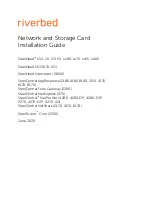
USB Open Host Controller Interface Functionality
14-6
14.2.2.2
Overcurrent Protection Input Pins Not Supported
The OMAP5910 device does not provide any pins that allow the USB host con-
troller OHCI RhPortStatus(n) overcurrent protection status bits to be directly
controlled by external hardware.
Users can use GPIO pins or other implementation-specific control mecha-
nisms to report port overcurrent information to the USB host controller driver.
14.2.2.3
HMC_MODE and Top-Level Pin Multiplexing and OHCI Registers
The USB signal multiplexing modes provide selections where 0, 1, 2, or 3 USB
host controller ports can be brought to OMAP5910 pins. The OHCI
RhDescriptorA register always reports three available USB host ports,
regardless of the CONF_MOD_USB_HOST_HMC_MODE_R field of the
MOD_CONF_CTRL_0 register or top-level pin multiplexing settings. When
the CONF_MOD_USB_HOST_HMC_MODE_R field setting of the
MOD_CONF_CTRL_0 register disables a USB host controller port, the USB
host controller sees that port as unattached.
When OMAP5910 top-level pin multiplexing configures a pin for functionality
other than the USB, the USB host controller is disconnected from that pin and
that pin does not affect the USB host controller.
14.2.2.4
No Ownership Change Interrupt
The OMAP5910 USB host controller does not implement the OHCI ownership
change interrupt.
14.2.2.5
Valid Address Ranges for Pointers to Data Structures
The mechanism that allows the OMAP5910 USB host controller to access
USB endpoint descriptor (ED), transfer descriptor (TD) , and HCCA data struc-
tures in system memory places certain requirements on the registers that point
to data structures in system memory and on the pointers within those data
structures. Details can be found in Section 14.6, USB Host Controller Access
to System Memory.
















































